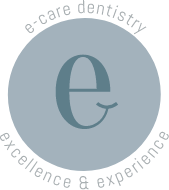Root canal treatments are fairly common dental procedures. However, if you have never experienced the process, then you may find yourself nervous if and when your dentist recommends it. The words, “root canal treatment,” can cause you to feel uneasy if you don’t understand how it helps. For decades, a root canal was a punchline in TV and movies to refer to a painful dental procedure. Though the truth is that root canal treatments have advanced far in the past few decades. Treatment is often faster and more comfortable than many patients expect, but most importantly, a root canal (endodontic) treatment is often your best chance at preserving what may be left of a severely infected or inflamed tooth.
Why and When Is It Needed?
Restorative dental treatments, like fillings and root canal treatments, are designed to address a specific dental problem and stop it from progressing. Root canal treatment addresses the problem of an infection or inflammation of the internal tissues of your tooth, known as the inner pulp. At the stage of tooth decay where the internal tissues become affected, you would likely be experiencing quite a bit of pain from the inflammation and/or infection. Treating the tooth may be the only way to stop an infection from moving from your tooth into other areas of your body through your bloodstream.
Last Chance Before Extraction
If an infection is allowed to wreak havoc on the internal structures of your tooth (i.e. a root canal treatment is not done at the point where it could help), the tooth may require a necessary extraction. Extraction could be the last way to protect you from a spreading infection. A root canal treatment can disinfect your tooth of the infection and restore it. A dental crown typically follows to cap a tooth that was treated with root canal treatment.
Root Canal Treatment Can Save Your Tooth
Understanding root canal treatment is important. To schedule a consultation, call E-Care Dentistry, PA in Olathe, KS, today at 913-210-1701. We also proudly serve patients from Overland Park, Lenexa, Leawood, Gardner, and all surrounding communities.
